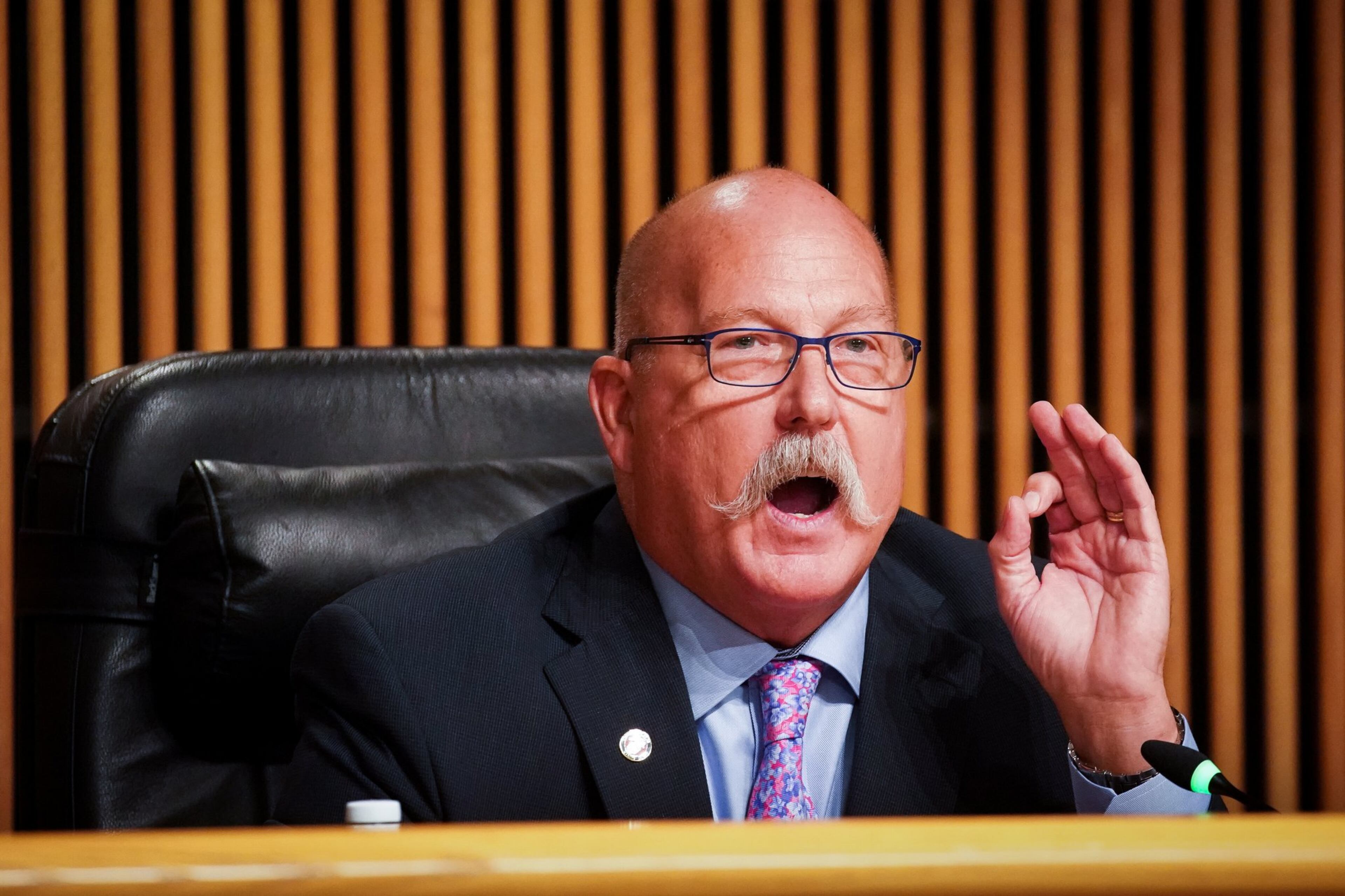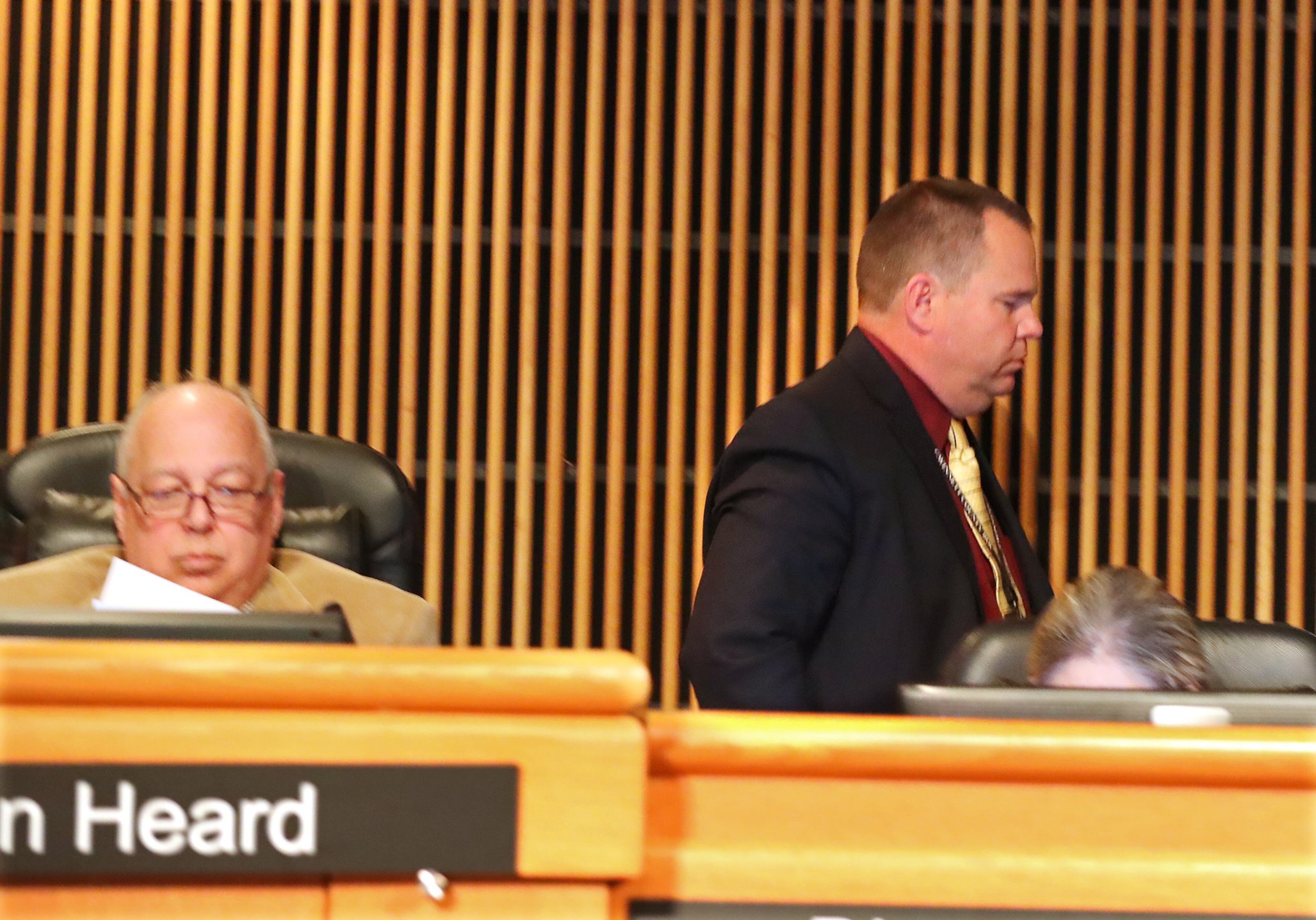New Gwinnett ethics complaint, same questions about ordinance’s intent

A new iteration of the Gwinnett County ethics board will meet for the first time Wednesday to investigate a complaint against Commissioner Marlene Fosque.
The board will decide if comments Fosque made in a public meeting earlier this year were inappropriate and worthy of admonition.
The process will again raise questions about whether ethics panels should be in the business of policing speech and personal behavior.
Gwinnett's ethics ordinance, drafted in 2011 in the wake of a wide-ranging bribery scandal, was chiefly aimed at preventing future corruption and clearly defining conflicts of interest for public officials and employees.
But thus far, only two ethics complaints have been filed: the one filed against Fosque in August and another against fellow Commissioner Tommy Hunter, who in 2017 infamously called U.S. Rep. John Lewis a "racist pig" on Facebook.
The specific subject matter — and the politics — are different. But both complaints are more about commentary than corruption.
Carla Miller, a government ethics expert and founder of the nonprofit group City Ethics, said that’s a problem.
“People think ethics commissions are somehow put there to enforce moral or good behavior,” said Miller, who is also the ethics director for the city of Jacksonville, Florida. “But they’re there to enforce government ethics. And they’re two different things.”

The Fosque complaint was filed by D.A. King, a controversial anti-illegal immigration activist and founder of the Marietta-based Dustin Inman Society. King participated in a July panel discussion that Fosque had organized to discuss the local sheriff's participation in a divisive immigration enforcement program.
Days after the forum, Fosque denounced King's participation and referenced the "anti-immigrant hate group" designation that King's organization has received from the Southern Poverty Law Center. Fosque also referred to King as "someone known for spewing hatred and bigotry and racism."
King’s subsequent ethics complaint accuses Fosque of defamation and alleges that the commissioner violated six tenets of the ethics ordinance by, among other things, putting loyalty to her political party over loyalty to the county.
Miller said governments often feed confusion over what ethics laws are for with poorly crafted ordinances.
The main tenets of Gwinnett’s ordinance include several directives for avoiding conflicts of interest – things like not accepting or soliciting favors “under circumstances which might be construed … as influencing the performance of governmental duties.”
But the ordinance also includes many tenets that are more aspirational (“use efficient and economical ways of getting tasks accomplished”) or vague in nature (“never engage in conduct which is unbecoming to a member or which constitutes a breach of trust”).
It's the latter group of directives that formed the basis of the 2017 complaint against Hunter — which was upheld, resulting in a public reprimand — and the new complaint against Fosque.
Fosque, a Democrat who took office in January, has declined to comment on the complaint.
But Miller said provisions that essentially encourage officials to “be good” should be kept in separate codes of conduct — and not included in ethics ordinances.
“Ethics laws should be (things like) you file your financial disclosure form by Jan. 1 of every year. You declared if you had a conflict with a vendor doing business,” Miller said. “You can’t start getting into behavior. It’s not workable.
“If there’s anything in the code that makes it seem like that is enforceable, that is a bad path to go down.”
Attorney Dwight Thomas, who has represented Hunter in his dealings with the ethics board, agrees. In a lawsuit filed in June on the Republican commissioner's behalf, Thomas described the ethics ordinance as "an overbroad 'political correctness' gag order."

Citing the pending complaint against Fosque, Gwinnett Commission Chairman Charlotte Nash declined to speak in detail about the pros and cons of the county’s ethics ordinance. But Nash, who helped draft the ordinance, all but conceded that recent cases have veered away from its original intent.
“Not just ours, but others are getting broadened in scope, it seems like,” Nash said. “So we’ll see how this plays out.”
By law, a new Gwinnett County ethics board is assembled each time a complaint is filed. The five-member panel that will investigate the Fosque complaint was finalized earlier this month.
The panel will hold its first organizational meeting at 10 a.m. Wednesday. The meeting will start the clock on a 30-day period in which Fosque can file a formal response to the complaint.
After completing its investigation, the ethics board will make a recommendation to the Board of Commissioners, which has final say on the outcome of the complaint and any potential penalties.
Public reprimand is the stiffest punishment Fosque could face.


